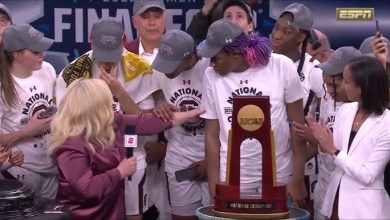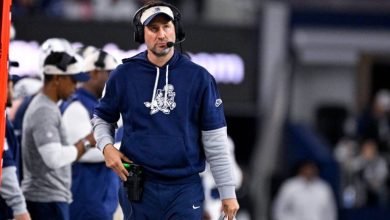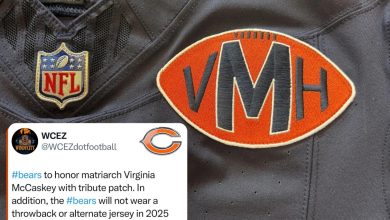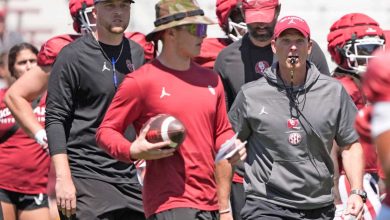A baseball player from Georgia is suing the NCAA for an additional season of eligibility.
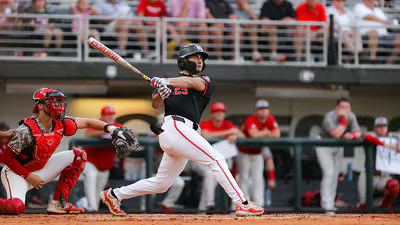
In the world of college athletics, where student-athletes often balance rigorous academic schedules with intense sports commitments, the rules regarding eligibility are paramount. These regulations are meant to ensure fairness and competitive balance, but at times they can seem restrictive, especially when it comes to the complexities of the COVID-19 pandemic, extended athletic seasons, and the unique circumstances that many players face. One such case is currently unfolding in the world of NCAA baseball, where a player from the University of Georgia has taken the unprecedented step of suing the NCAA in order to secure an additional season of eligibility. This legal battle could have profound implications for future college athletes and their ability to navigate the complex eligibility rules set forth by the NCAA.
This article will examine the details surrounding the lawsuit filed by the Georgia baseball player, explore the broader context of eligibility rules in college athletics, analyze the implications of this case on the future of student-athletes, and consider the potential outcomes for both the player and the NCAA.
1. The Case: A Georgia Baseball Player’s Legal Battle
The player at the heart of this case is Jackson Hall, a standout baseball player at the University of Georgia. Hall had been performing at a high level as part of the Bulldogs’ baseball team, showcasing his abilities as a versatile outfielder with impressive power and speed. His talent had made him one of the more promising players on the Georgia roster, and many believed he had a bright future ahead of him, whether at the professional or collegiate level.
However, like many college athletes, Hall’s trajectory was disrupted by the COVID-19 pandemic, which led to the cancellation of the 2020 NCAA baseball season. The pandemic had an enormous impact on college sports, with athletes seeing seasons cut short, rosters disrupted, and many missing out on crucial development opportunities. In response, the NCAA granted all spring sport athletes an extra year of eligibility, effectively allowing them to compete for an additional season of college play without losing a year of their athletic career.
While this move was praised by many as a necessary step to support athletes during an unprecedented time, the application of this rule has not been without its complications. Hall, who was a sophomore at the time of the 2020 cancellation, was granted the additional eligibility extension like many others. However, in 2022, he faced a unique challenge when he was told by the NCAA that his eligibility had expired, even though he still had an additional season to play.
This is the crux of the lawsuit: Hall argues that his eligibility was unfairly cut short due to bureaucratic inconsistencies in how the NCAA applied the extra year of eligibility. He contends that, under the terms of the NCAA’s own ruling, he should have been granted an extra season but that the administrative processes surrounding the eligibility extension were flawed. He believes that his situation is emblematic of a broader issue, one in which the NCAA’s approach to eligibility during and after the pandemic has been inconsistent and unfair.
2. The NCAA’s Response and the Legal Basis for the Lawsuit
The NCAA has long maintained that it has a set of clear eligibility rules, and its decisions are typically considered final. While the organization granted an extra year of eligibility to student-athletes whose seasons were affected by COVID-19, it also stipulated certain criteria for how this rule would be applied. For some athletes, these criteria were clear; for others, they were more nebulous.
In Hall’s case, the NCAA argued that his eligibility extension had already been applied in 2020, and that he had used his full allotment of eligibility for college athletics by the time 2022 arrived. The NCAA stated that Hall had no further recourse under their existing rules, citing their interpretation of when the eligibility extension could be used and whether it had already been exhausted.
However, Hall’s legal team argues that the NCAA’s decision was based on an arbitrary application of the eligibility extension and that the governing body failed to properly account for the disruption of the 2020 season in a way that would allow players like Hall to receive fair treatment. The lawsuit is founded on claims of unjust enrichment, breach of contract, and misapplication of the NCAA’s own rules regarding player eligibility. Hall’s legal counsel has called for the NCAA to either extend his eligibility or allow him to return to Georgia for a final season of play.
The suit, filed in federal court, claims that the NCAA violated its own policies, caused harm to athletes by denying them opportunities for an additional season, and has created an environment where certain players have been disadvantaged due to administrative confusion and unclear guidelines. Hall’s team has also pointed to the fact that other programs have had more lenient or differing approaches to granting eligibility, thus creating a level of inconsistency that has harmed student-athletes across the board.
3. The Broader Context of Eligibility Rules in College Athletics
To fully understand the significance of Hall’s lawsuit, it’s essential to first grasp the broader context surrounding NCAA eligibility rules, especially as they pertain to college baseball.
The NCAA’s eligibility rules are designed to ensure that players have a fair and equal opportunity to compete in college athletics. These rules are based on a combination of academic requirements, time limits on athletic participation, and scholarship restrictions. Typically, athletes are allowed four years of eligibility, which they can use to compete in their sport. Once a player exhausts their eligibility, they are no longer permitted to participate in that sport at the collegiate level.
However, with the onset of the COVID-19 pandemic in 2020, the NCAA made a landmark decision to offer spring sports athletes an extra season of eligibility. This was a direct response to the widespread cancellation of spring seasons, which left many athletes with incomplete or shortened campaigns. The decision was met with widespread approval from athletes and coaches alike, as it allowed students to continue pursuing their athletic careers without penalizing them for circumstances outside their control.
While the decision seemed straightforward at first, the implementation has been complicated. NCAA eligibility rules have always been a source of frustration for many players, coaches, and administrators due to their complexity and inconsistency. The pandemic has only amplified these concerns, as athletes and programs alike have struggled to interpret the rules in a way that ensures fairness and equity.
For some players, the extension of eligibility has created new challenges, including roster management issues and scholarship restrictions. For others, like Jackson Hall, it has resulted in uncertainty and frustration. Hall’s lawsuit is part of a larger movement among student-athletes who feel that the NCAA has failed to live up to its promise of fairness and transparency in how eligibility is handled.
4. The Potential Impact of Hall’s Lawsuit on Future College Athletes
If Jackson Hall’s lawsuit is successful, it could set a significant legal precedent for how the NCAA handles eligibility for future athletes. A ruling in favor of Hall could pave the way for other players who have been similarly affected by the pandemic to seek additional eligibility or reconsideration of their status. It could also prompt the NCAA to reconsider its approach to eligibility rules more broadly, creating a more consistent, transparent system that accounts for unforeseen disruptions like the COVID-19 pandemic.
One of the most significant impacts of this case could be on the future of athletes who find themselves in similar situations. College sports are inherently competitive, and an additional year of eligibility can mean the difference between a player securing a professional contract or fading into obscurity. By ensuring that players like Hall receive the opportunities they are entitled to, this case could help level the playing field for future generations of athletes who find their careers unexpectedly interrupted.
Additionally, a ruling in Hall’s favor could encourage greater advocacy for student-athletes across college sports. If the court rules that the NCAA must offer more flexibility in eligibility matters, it could spark broader discussions about how college athletes are treated, both in terms of their athletic opportunities and their rights as students. The conversation around player compensation, mental health, and scholarship benefits has already gained momentum in recent years, and this lawsuit could be a catalyst for further reform.
The Future of NCAA Eligibility and Fairness
As Jackson Hall’s lawsuit against the NCAA unfolds, it represents more than just one player’s struggle for an additional season of eligibility. It speaks to a larger issue within college athletics, one that involves fairness, consistency, and transparency in how the NCAA applies its rules. The pandemic created a unique set of circumstances that has left many student-athletes in limbo, and this lawsuit represents one of the first major legal challenges to the NCAA’s handling of eligibility issues.
Regardless of the outcome, this case is likely to prompt greater scrutiny of the NCAA’s eligibility rules and could lead to significant changes in how the organization handles such matters in the future. For players like Jackson Hall, the fight for fairness is not just about one more season of eligibility — it’s about ensuring that all student-athletes are given the opportunity to pursue their dreams and receive the opportunities they deserve, regardless of circumstances beyond their control.
In the coming months, the legal proceedings will reveal whether Hall’s case will succeed, but regardless of the outcome, the lawsuit has already sparked important conversations about how college sports can better serve the athletes who power the game.



